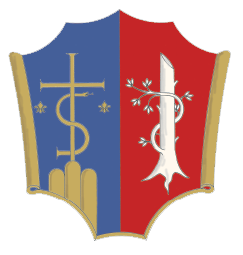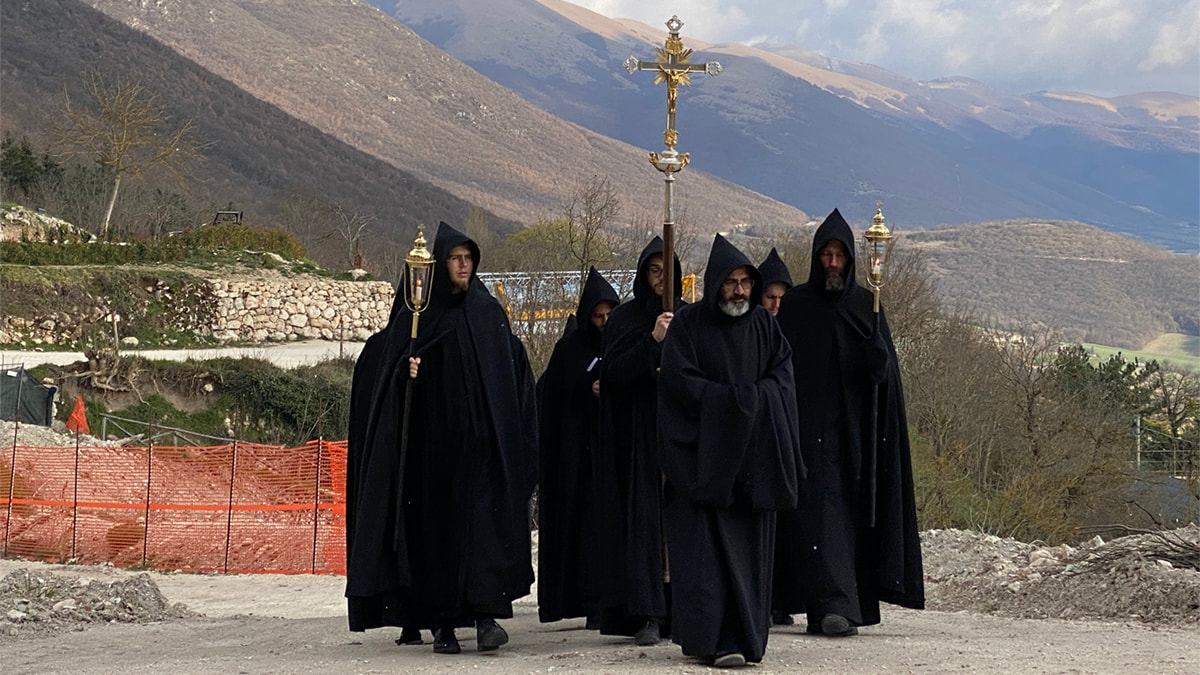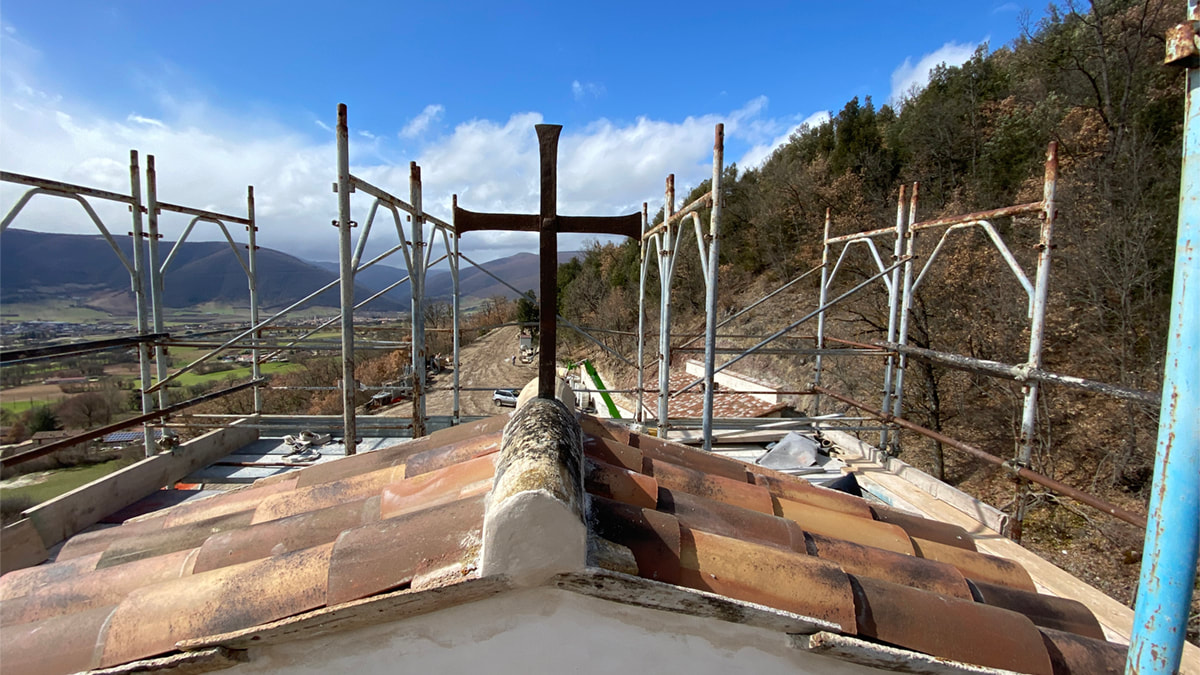|
St. Benedict exhorts us: “Keep death daily before your eyes.” In this prompting taken from the fourth chapter of our patron’s Rule, we are reminded that God is the ultimate master of our lives, even if His presence is not always evident. In a fatherly way, St. Benedict also calls us to weep for our sins in fear of the coming Judgment. The reality of death and judgment reminds us to trust in the mercy and justice of God alone, whereas being forgetful of death can lead us to rely on ourselves and the world’s solutions to our problems.
Amid the coronavirus pandemic, life for the monks in Norcia (all healthy as of March 30) continues much as normal, with a few exceptions. Every morning, during the solemn high Conventual Mass, we have added prayers against pestilence. In the afternoon, we process through the property with relics of the True Cross, praying for liberation from “plagues, famines and wars,” as did the ancients, who knew these tribulations often arise together. Particularly in our prayers are the many doctors and nurses who are sacrificing much -- and risking much -- to keep others alive and return them to health. Our region of Umbria’s population is geographically dispersed, so the cases of coronavirus around us are fewer than in the far north. We know that this could quickly change. A striking change for us has been the complete absence of visitors to the chapel. Although Norcia is off the beaten path, we are blessed to be able to often share our life -- the chanted Office and Holy Mass -- with visitors. The measures adopted by the Italian government have meant that most Italians now live in an imposed cloister in their homes and our friends abroad cannot travel. Hiddenness from the world takes on an almost sacramental symbolism during this extraordinary crisis. For centuries, it was not possible to see up-close the mysteries of the altar. In certain periods, curtains were drawn at the most important moments of the Mass. Still today, the solemn prayers of consecration are said in the lowest of tones – a whisper – as the drama of the liturgy unfolds. The hiddenness intrinsic to the Mass (with an iconostasis in the Byzantine rite) was common to all in some form for many hundreds of years; it summoned an atmosphere of mystery. In our age, which demands to see in order to believe, God is offering us a chance to rediscover mystery – the mystery of the Mass’s unseen efficacy (2 Cor 4:18). We must rely on an invisible medicine for our ultimate salvation in the face of this invisible threat. One of the monastery’s greatest blessings in recent years has been the new monastic life born in trial. Many of the monks were clothed and made professions in the period after the 2016 earthquakes. Now, new monks persevere amid the pandemic. For example, on the Feast of the Annunciation, a young novice made his simple vows. Though no lay faithful attended, a full array of monks, angels and saints were there to watch. A spring snowfall brought a further sense of the unexpected to the event, making the feast’s momentous Gospel all the more prescient: “no word shall be impossible with God.” It becomes clearer every day that we will all be suffering with the physical, economic, psychological and spiritual consequences of the coronavirus for some time. We should be willing to learn the lessons God wants to teach us. A great temptation is to demand that God return what we have lost. In the field of tragedy, God sows seeds of new life. We all must water them with our prayers (both seen and unseen), our sacrifices and, perhaps, even our lives. But death does not have the last word. Very Rev. Dom Benedict Nivakoff, O.S.B. Prior Scaffolding rises on the bell tower -- which is nearing completion -- of the 16th-century church currently under restoration at the Monastero di San Benedetto in Monte. This view overlooks the town of Norcia and the Valley of St. Scholastica. From this place, the monks keep close in prayer the people of Italy and the whole world, currently suffering the spread of the coronavirus.
|
Archives
March 2024
|
© 2023 Monastero di San Benedetto in Monte



 RSS Feed
RSS Feed